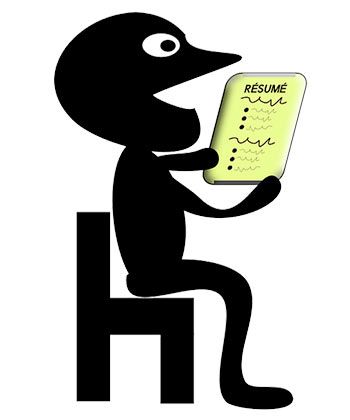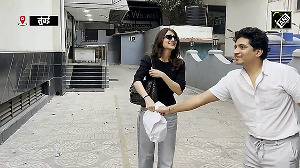An employer spends less than a quarter of a minute on your CV. Does it have all it takes to make a fine impression?
 Your Curriculum Vitae should be a comprehensive document detailing yourself, your capabilities and your aspirations.
Your Curriculum Vitae should be a comprehensive document detailing yourself, your capabilities and your aspirations.
An interviewer would make his/her first impression about you basis your CV. A CV is a marketing document in which you are marketing something -- YOU. Hence it very important for a job seeker to write a CV well.
We have seen that over 75 per cent of job seekers get rejected at the CV stage itself. What does this mean and why does it happen?
A rejected CV means that the interviewer did not get what s/he was looking for in a candidate after reading your CV.
This could be because of two reasons:
1. The job you are applying for is not as per your skillset
2. Your CV does not provide the right information (as you would have liked it to be) to the interviewer.
The interviewer assumes that you don't have the necessary skills for the role applied for and rejects you at the CV stage itself.
You should avoid putting yourself in this position and hence it is important that you write your CV in the right format.
Highlight your key skills, knowledge, your interest areas, personality and your aspirations.
Let’s look at the four key elements you should include in your CV.
Data: Capture basic data fields such as name, gender, education, experience, interests, languages known (read, write, speak), age, location etc.
Knowledge: Clearly mention your domain proficiency
Skills: Soft skills are key in all job roles and the degree of skills needed would vary from job to job. Few common soft skills required are Communication Skills, Teamwork, Time management skills, listening skills, problem solving skills etc.
Behaviour: Certain common behavioural attributes that employers seek in prospective employees are Analytical Skills, Congeniality, Decisiveness, Efficiency, Honesty etc.
How to write a CV
It is important to structure your CV well.
Remember it is important for the person reading your CV to get a good understanding about you through your CV.
Below is a list of what your CV should comprise:
- Personal Details: Full name, contact address, telephone, email id
- Education Qualifications: Names of schools, colleges and universities along with the dates attended followed by qualifications acquired. Mention specific skills, awards or accolades acquired.
- Work Experience (if any): Include employers' name and location along with dates and job roles. Also mention duties and responsibilities, achievement and promotions.
- Language Proficiency (Speak / Read / Write)
- References (which can be used before final selection )
- Interests and hobbies (always a good way to end a CV)
DOs and DON'Ts to follow
Do remember the following while writing your CV:
- Your CV should ideally be under two pages. It should not become a booklet with multiple case studies, stories etc.
- Understand the job role and company you are applying for and make changes to your CV accordingly. Customise your CV to fit in with the role
- Information on your CV should be concise and to the point.
- Never ever include false information in your CV. If you get caught during the interview or background verification stage, you may face dire consequences.
- All information should be laid out clearly. Do not cramp it to put all possible information at one go. Chances of the latter being trashed is higher.
- Make your CV modular. Use short paragraphs, bullet points and simple language to convey your message. No paragraphs please!
- Be positive, put yourself confidently and highlight your strengths.
- Pay attention to the font size and layout of your CV. You need to use the same font across the document, and do make use of highlighters, bold, italics etc to emphasis on the points you want the recruiter to focus.
- If you are sending your CV by post or by e-mail, remember to send it along with a covering letter.
Remember, this document is a trailer and if you do get called for an interview, you will have all the time to detail your skills.
A great CV should relay to the interviewer that you are the right person for the job in few minutes. Having said that, a reviewer spends less than six seconds on your CV before he considers or trashes it.
So your CV should get straight to the point. Does your CV pass the six-second test?
Lead image used for representational purposes only. Image: OpenClipartVectors/pixabay.com
The author Neeti Sharma is senior vice president, TeamLease Services.











 © 2025
© 2025